Story/Graphics/Audio
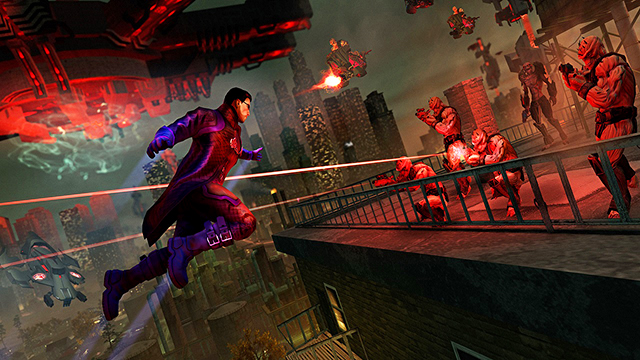
Swallowing any pretense of grounding in any sort of reality, Saints Row 4 has the leader of the Third Street Saints become President of the United States after stopping a nuclear attack on America. Five years into his reign as the most electable President ever, the custom made hero is attacked unsuspectingly at the White House by an alien race known as the Zin, with their leader Zinyak helming the invasion force. A valiant defense is put up by the President and his men, but the Zin ultimately capture the President, imprisoning him (or her) in a prison of his own design. Like Neo in the Matrix, the President ultimately escapes the illusion, but he/she needs to go back in to defeat Zinyak and liberate the members of the Third Street Saints.
More sci-fi epic than silly Grand Theft Auto clone (although there is plenty of silliness to be had), Saints Row 4 is a mish-mash of different games and genres, which include Crackdown, InFamous, Jak 2, Mass Effect, The Matrix, and of course, Saints Row itself. The game also features Keith David (best known to gamers as Captain Anderson in the Mass Effect trilogy), playing himself as Vice President Keith David, which is a great treat for everyone.
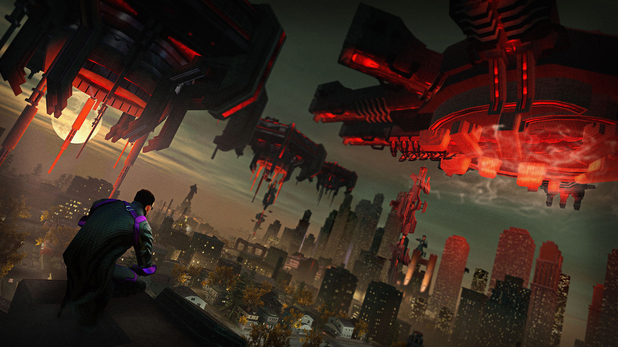
Visually, the futuristic city of Steelport features drab and dark visuals, with an undercurrent of imposing and foreboding structures, with some residential housing thrown into the mix for variety. While Steelport is vast and sprawling, the distinct lack of visual variety sometimes makes it a bit difficult to familiarize yourself with distinct areas of the locale. Sometimes, it just feels like you’re speeding your way through a sandbox created as your playground rather than a living, breathing city, with inhabitants (although that does jive well with the game’s narrative).
Steelport is a city constructed from the mind of Zinyak, and it truly feels that way. A place where order is meant to triumph over chaos, but you, the President of the United States, are equally as meant to lead the battle of chaos over order. While that’s the case thematically, there’s sometimes so much going on visually in the city that as a player, you seem to lose track of that, and occasionally, the chaos upturns the order in ways that don’t seem intentional.
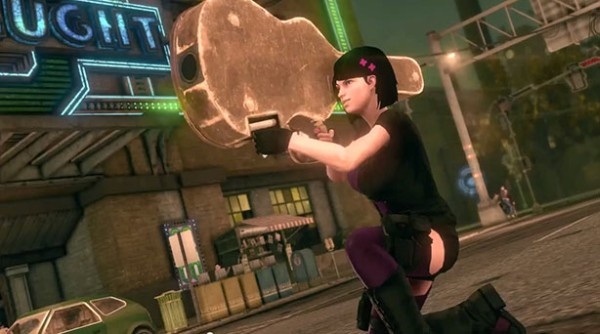
One of the really nice features of the game from an audio perspective is the constantly playing radio, which features an exhaustive list of 109 tracks. These are both current, classic, and classical and range from Mackelmore & Ryan Lewis’ ‘Gold’, to Aerosmith’s ‘I Don’t Want to Miss a Thing, to Chopin’s ‘Grande Valse Brilliante in Eb Major, Op. 18.’ While the radio is typically a device only to be used in vehicles in open-world sandbox games, the impressive soundtrack can be blasted at any time, which makes sense given that you spend the vast majority of the game not riding around in any sort of vehicle.
Gameplay
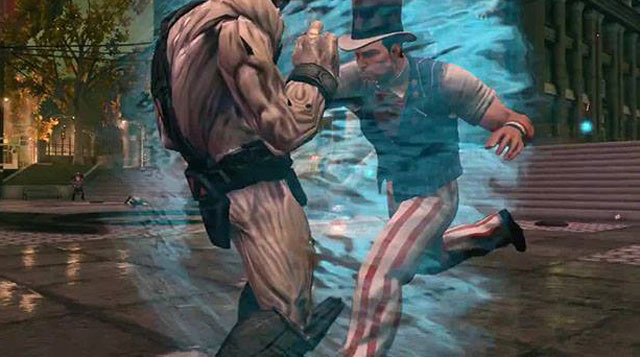
Eschewing any sort of grounding in reality, the gameplay of Saints Row 4 is a radical departure from its three predecessors. Having more in common with Crackdown and The Matrix, Saints Row 4 emphasizes speed running over driving, and power jumping over jacking vehicles. In fact, outside of main story missions, there is very little reason to utlizie vehicles, as its much more efficent to run up a building, jump off, glide, and repeat. You have quite a bit more in common with Goku from Dragonball Z than the President of the United States, minus the spiky hair (although you could of course, make that if you wanted).

However, where the game really shines is in its sheer amount of customization options. Custom characters are not limited to voice, clothing or aesthetic choices based on their gender. Males can be voiced by females and wear dresses, women can have deep male British accents and sound like an Ork from Warhammer 40k. Choice is entirely left up to the player in customization, and this definitely makes for some entertaining if not totally wacky character creation.
While following around your custom character is certainty a great plus, the missions where you control them often fall a bit flat. While references to other sci-fi media is abound, from a Tron inspired mission to a literal Neo wakes up from the Matrix section, this often doesn’t add up to varied or unique mission parameters.
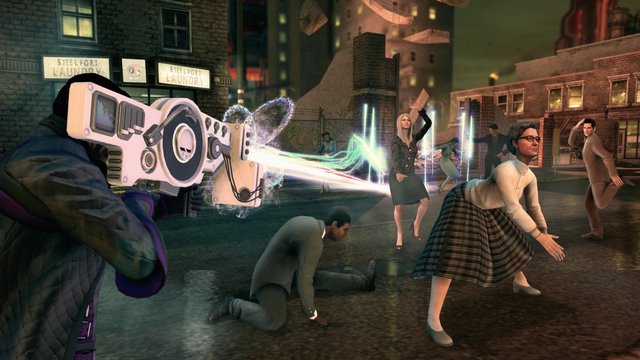
Often, the player will find themselves hacking down the same group of Zin aliens, or scaling the same or similar looking buildings to collect raw data to power up their abilities. Although this certainty can be rewarding, the lack of variation in the mission structure really makes the filler feel like a primary point of the game, as fetch quests and mayham runs make a significant if not necessary return.
Perhaps Saints Row 4’s greatest strength is when it embraces its wackiness not just in its aesthetic or visuals, but when it integrates that wackiness into the gameplay itself. This can mostly notably be seen with the Dubstep Gun (which you can watch in action), a hilarious weapon that allows the player to shoot out some ‘wub wub wub’ in classic, industrial or pop variations. From a gameplay perspective, the gun isn’t entirely necessary, but it feels like an integral part of the universe, and has a place in its construction. This is a lot how most the game feels like, a collection of disparate but ultimately interesting surroundings and objects, that by themselves are nothing but spectacle, but put together, create a good amount of fun for any player.
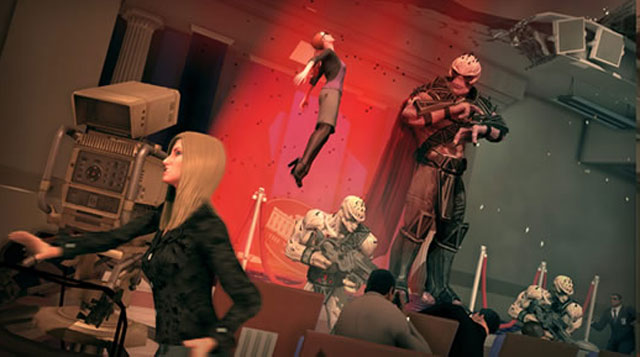
Saints Row 4 is nothing but consistent, and offers an experience that is fun and full of spectacle, but sometimes feels as though it lacks subtlety or depth. While the game offers a fun end-of-summer blockbuster feel, its radical departure from all things Saints Row make it a wacky and often uneven experience.
Saints Row 4 will be available for purchase on August 20th for the Xbox 360, PS3 and PC platforms. Console owners can pick up the game for $59.99, while PC gamers can purchase it for $49.99.
Rating: 7.5/10
Comments
REVIEW: ‘Saints Row 4′ is an Elaborately Designed Spectacle of Fun